‘Rewarding work’: How the Food Bank’s corporate partners invest in lives
July 30, 2025
The brick and glass office building on the Wilmington Riverfront that houses Barclays US Consumer Bank sees many visitors, often seasoned banking professionals. Several times a year, though, a different group of visitors walks through the doors: students from the Food Bank of Delaware’s workforce training programs.
These students have participated in hands-on job training in the culinary and warehouse fields, and now they are at Barclays for additional professional mentorship. It’s part of a longtime partnership between Barclays and the Food Bank of Delaware that has only grown stronger over the years.
The Food Bank relies on corporate giving and volunteers to meet its mission, and Barclays sets a gold standard, says Larry Haas, chief development officer at the Food Bank. Barclays supported the Food Bank’s new 70,000 square foot facility in Milford, for example, and recently provided a grant to expand the Kitchen School in Newark, which offers a 12-week job training program for adults with disabilities. Over the years, they have given millions of dollars to various Food Bank initiatives. But the company is not only generous with money and food items, but time — holding special fundraising events, getting the word out to employees about opportunities to contribute, and in general encouraging a robust culture of volunteerism.
“They’re definitely always looking for ways to support, and they lead the conversation with our team to say, ‘Where is our support most needed,’” Haas says. Barclays also serves as a sounding board for ideas about new projects.
The roots of this partnership go all the way back to Juniper Bank in the early 2000s, which was later bought by Barclays, says Jennifer Cho, head of citizenship and community relations for Barclays US Consumer Bank. It started primarily with volunteer service, and gradually grew to encompass the wide range of support seen today. In the past decade, Barclays has taken on a larger role with the Food Bank’s workforce programming.
“Our colleagues love working with the Food Bank’s workforce students,” Cho says.
“This is something where I can really help people in sharing my skills,” says Jen McEntee, director of customer experience at Barclays US Consumer Bank. “This is the type of volunteering that’s important to me.”
Barclays staff volunteer thousands of hours each year across a range of causes. Hundreds choose to work with the Food Bank in various capacities.
“Supporting our community is central to who we are. As we always say, it’s part of our DNA,” Cho says.
Part of what draws employees to the Food Bank is its mission. “The Food Bank thinks about their initiatives as food for today (their food distribution programs) and food for tomorrow (their workforce initiatives),” Cho says. “It’s like the old adage goes — give a man a fish, and you feed him for a day. Teach him to fish, and you feed him for a lifetime.”
There’s also a strategic alignment. Barclays’ Life Skills initiative aims to help people gain the skills and confidence to get work and build a better future, Cho says, so the Food Bank of Delaware’s workforce programs fit in really well with this focus.
“They’re making a significant impact across our communities, both in the short term by getting food on the table for those people in need, but then also thinking about how to prepare those people for longer term success,” Cho says.
That long-term preparation is near to McEntee’s heart. She visits the Food Bank every quarter to teach customer service and resumé classes, sharing insights from her customer experience background that students can apply in their career journeys. Then each cohort gets the chance to visit Barclays and meet the cafe staff as well as other bank volunteers.
There, they have an opportunity to become familiar with employer expectations in a corporate atmosphere. They polish their resumes, pick up networking skills, and learn how to navigate interviews, McEntee says. In some cases, people may not have had a job interview in years, or ever, she says. They get advice on answering common questions like identifying strengths and areas to improve, or explaining gaps in their resume.
They also get to spend time with the Barclays cafe chef and manager, as well as the facilities and security team. They learn more about jobs available in the Barclays building, including in the on-site cafe, and often are able to interview for internship positions there.
Barclays does a good job exposing students to a professional setting, Haas says, helping them get comfortable and so they can learn even if they’re initially intimidated. “[That] is huge for a lot of the students.”
In her customer service training, McEntee reminds job seekers of principles that apply to any position, with the idea that everyone, whether they are a sous chef or cleaning tables, has a customer, who is relying on them to carry out their responsibilities effectively. They learn the importance of customer services and making an impact in each situation, along with soft skills like understanding how to deal with conflict.
“Bringing a customer service mindset to your team makes you a better team player,” McEntee says, and she enjoys seeing the lightbulbs go off as students realize how the principles apply. “What gets me excited about volunteering is just trying to help people set themselves up for being able to secure a job that creates financial independence and translates to success. To me, that’s just rewarding work.”
Another reward comes when McEntee attends the graduation celebrations the Food Bank holds at the end of each course. More than 1,000 students have graduated from the Food Bank workforce programs, with many of them going on to land jobs.
“To see how people grow from the beginning of the program to the end, and witness their renewed sense of confidence, and notice their smiles, and see their excitement after getting a new job, there’s usually never a dry eye in the house on graduation day,” McEntee says. “And that’s great to see.”
For Barclay’s, that’s the kind of investment that doesn’t pay in interest or dividends, but in lives.



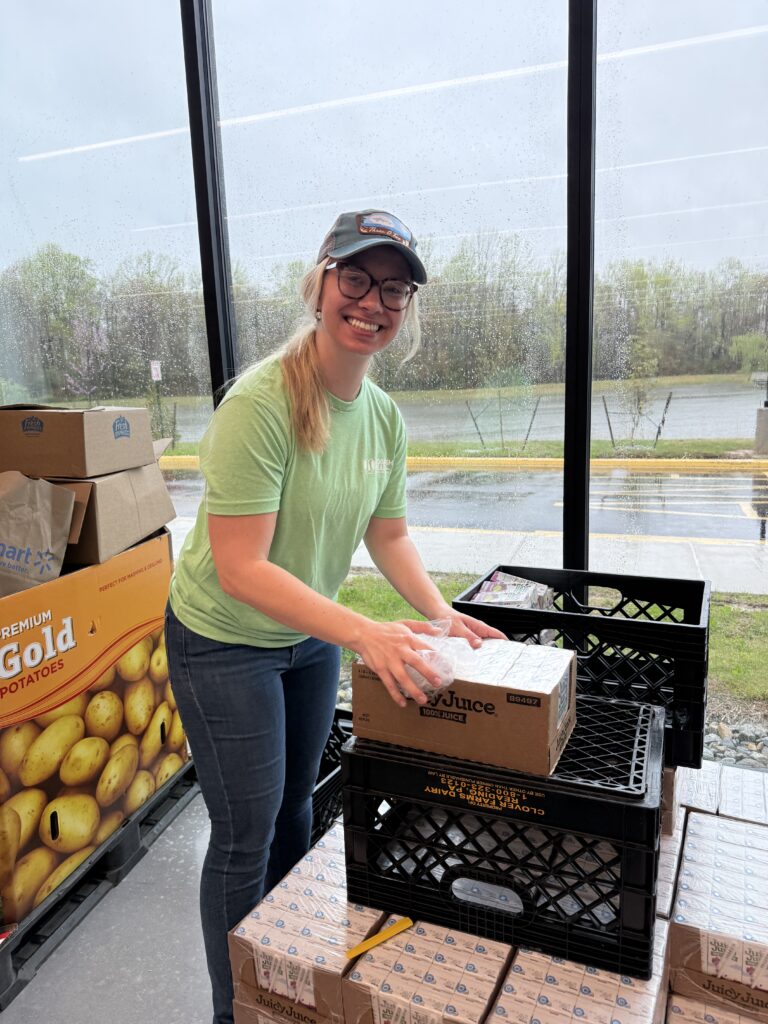
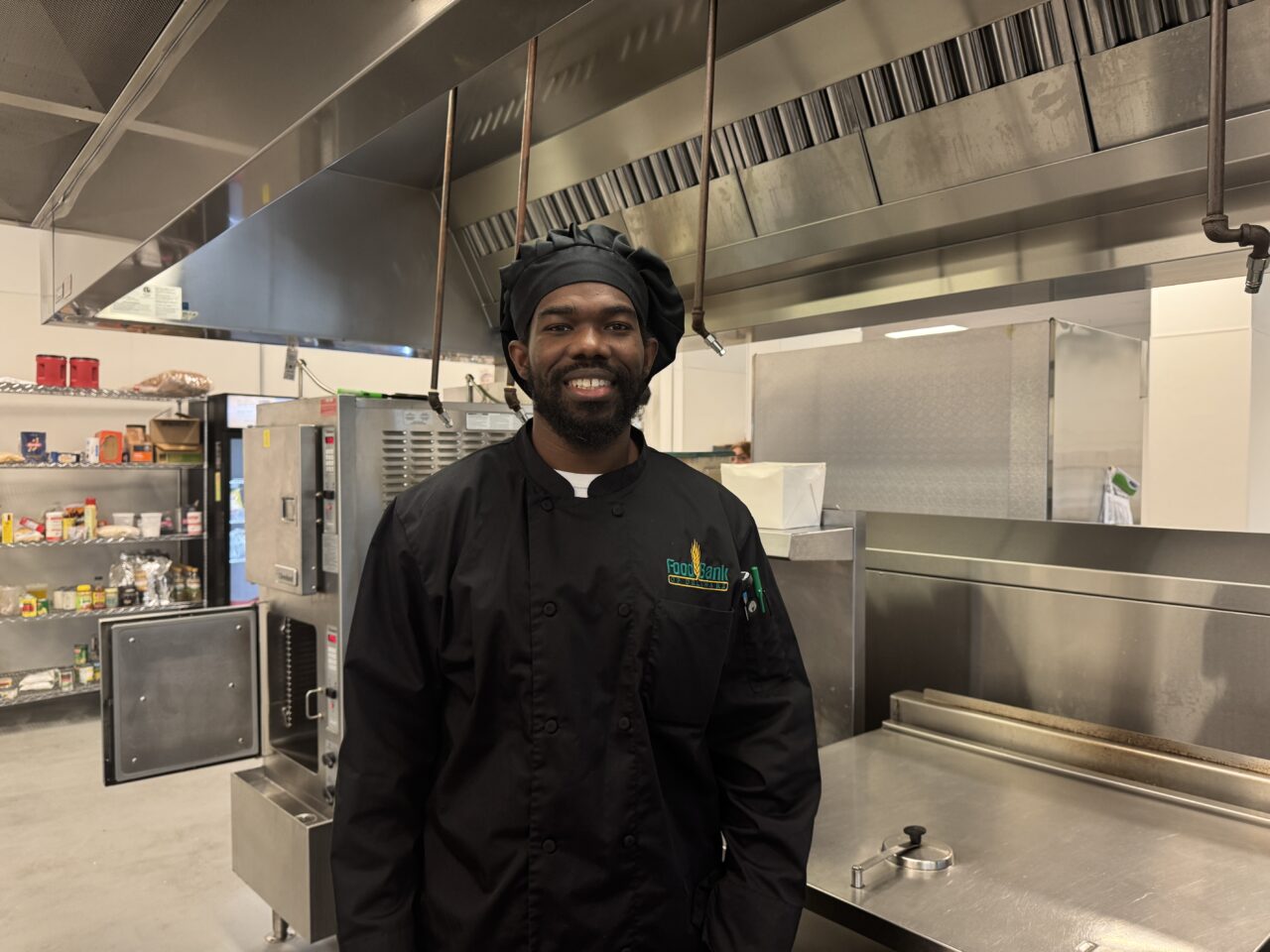
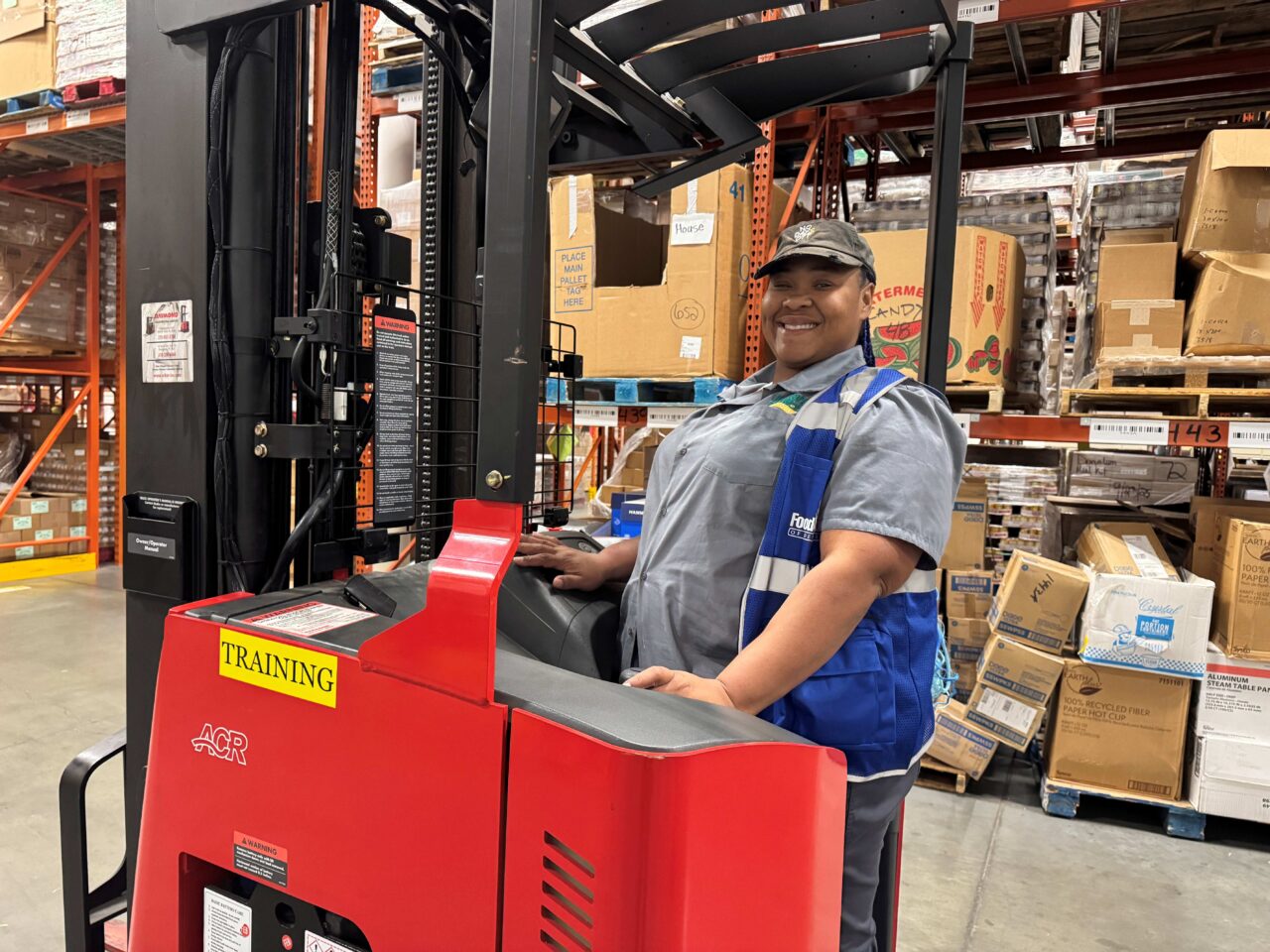
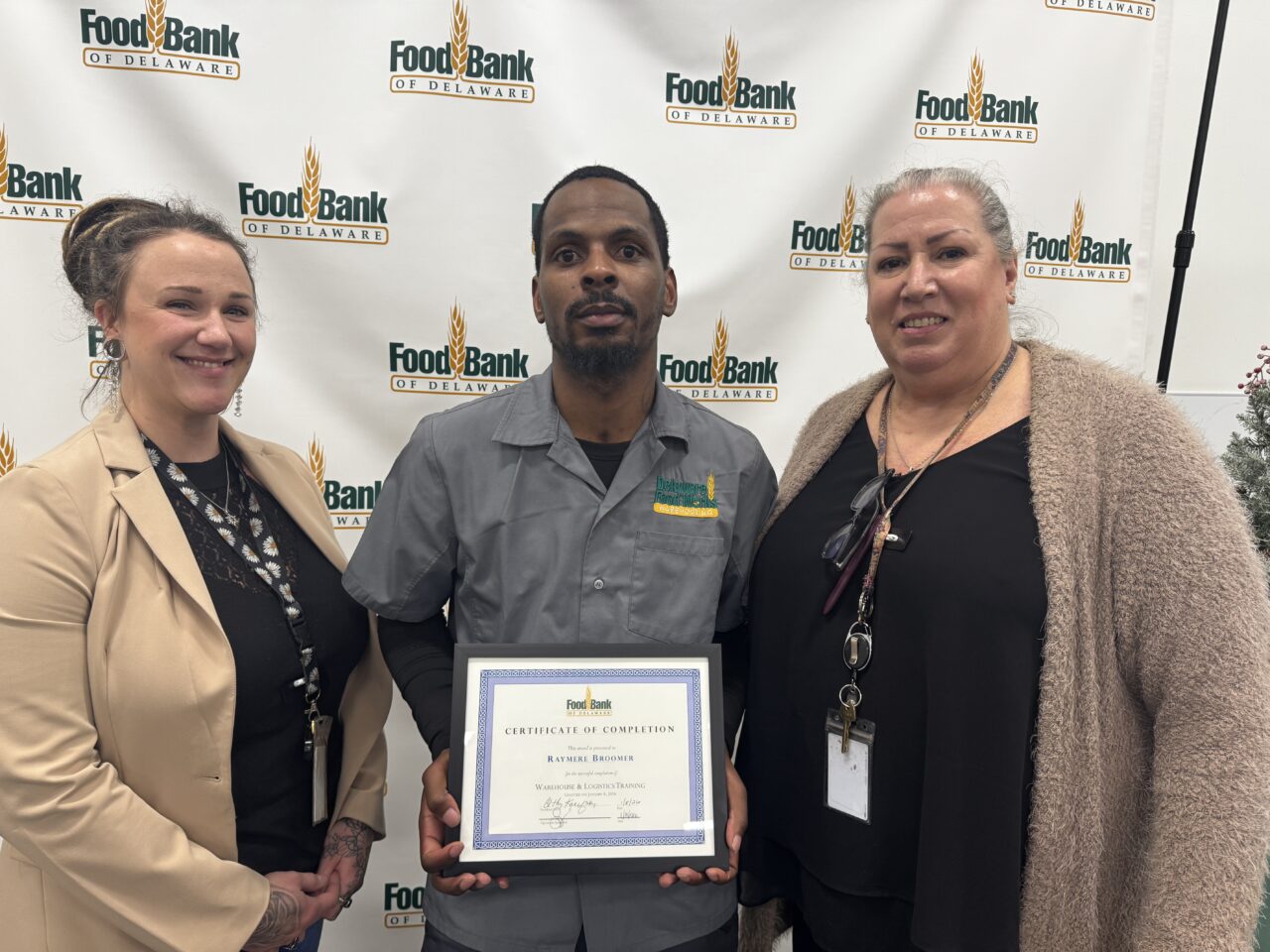
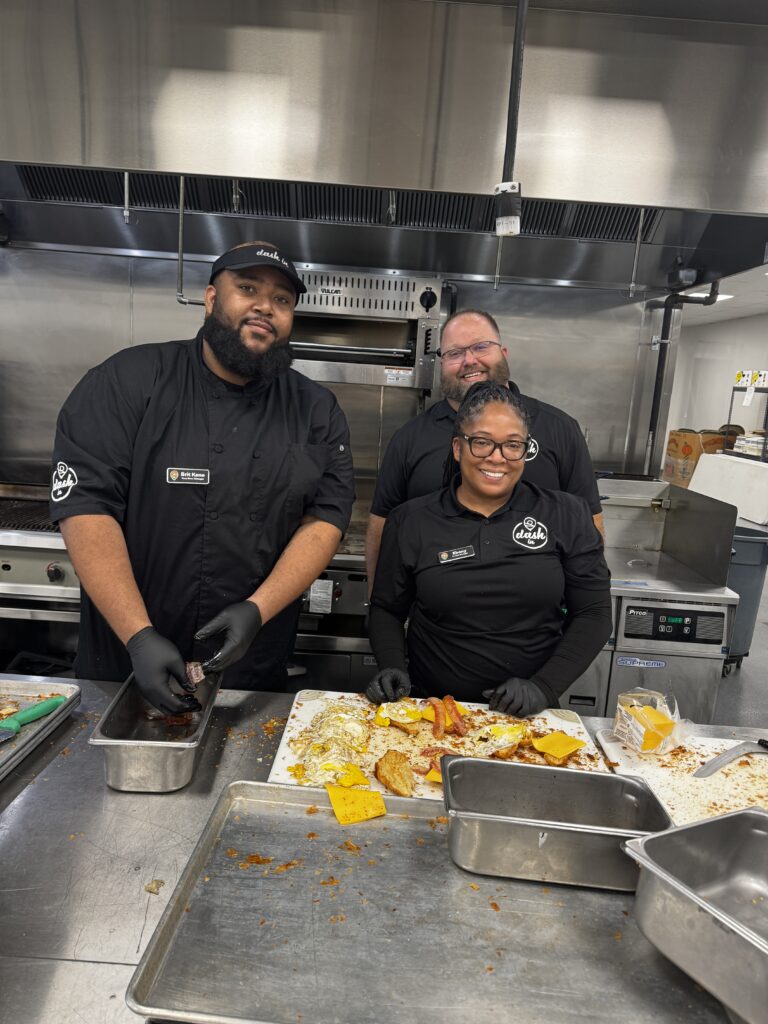

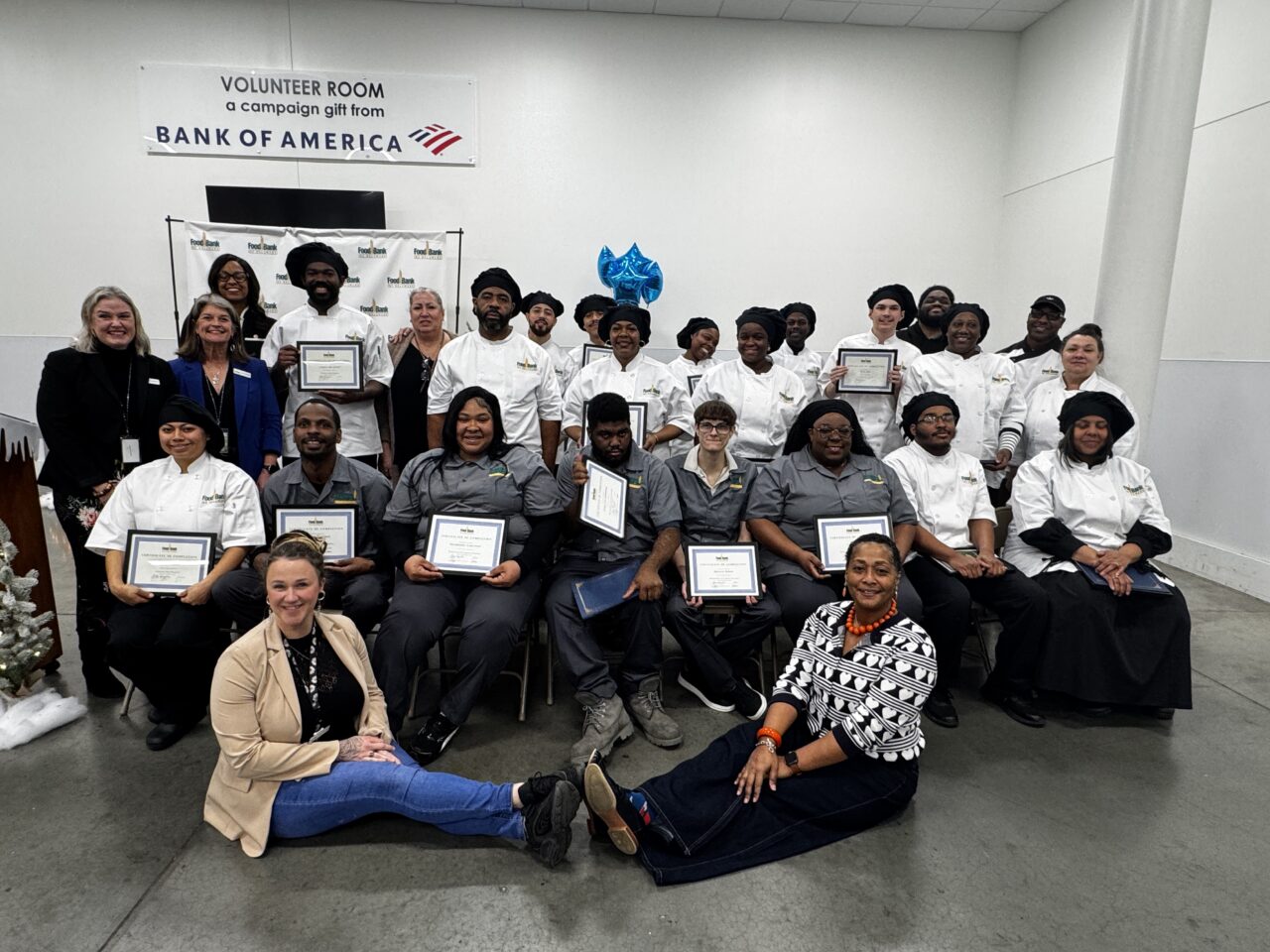
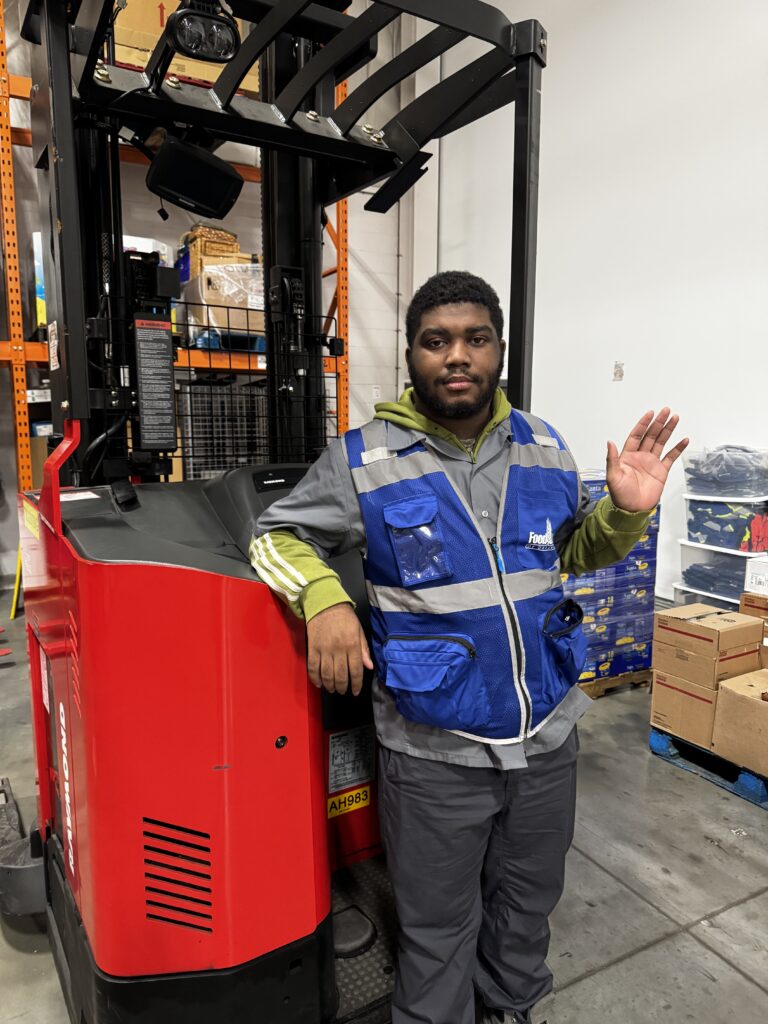
Comments are closed here.